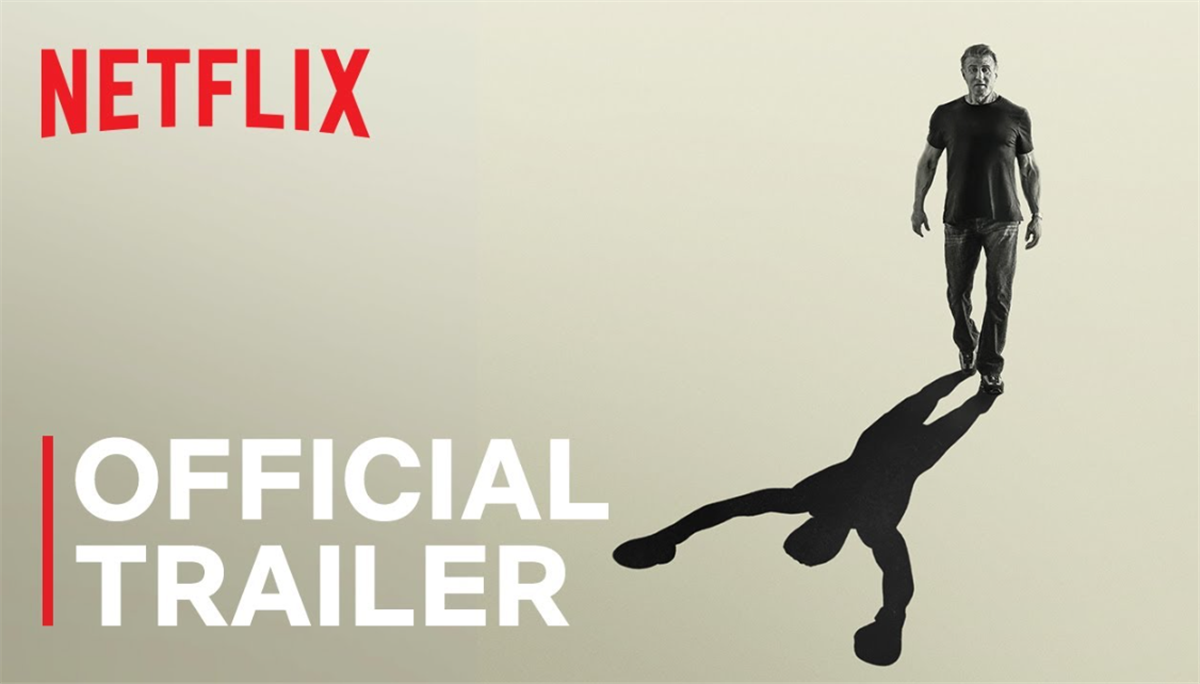Though the litany of celebrity documentaries are often superficial, there is much that gets revealed in Thom Zimny’s one about the iconic action star.
Though there will likely always be a debate about whose movies are better between Sylvester Stallone and Arnold Schwarzenegger, when it comes to the Netflix documentaries made about them, there is a clear winner in Sly. Where the Schwarzenegger documentary proved to be an incomplete profile that mostly felt like it was trying to sell you something, this one from director Thom Zimny manages to largely avoid falling into the trappings of the celebrity documentary. Is there a sense it is playing it a bit safe and Stallone is often driving the direction it all takes? Absolutely. At the same time, what it is that he is interested in and cares about as a filmmaker gets drawn out to rather unexpectedly complex results.
Namely, this is because the documentary is built around him reflecting on his journey to Hollywood stardom and the sacrifices of filmmaking rather than merely reveling in his success. Too often, the celebrity documentary can feel like it is just about stroking the ego of its subject and re-playing their greatest hits. There can be something entertaining about this, but it may also become exhausting without any great introspection to it. When we’ve known these people on screen for decades, we already know who they are and what they’ve done. The more interesting works are the ones that cut a bit deeper beyond the fame and the image they’ve created for themselves. Rather than feel like it is marketing in disguise for a new project, as was the case with the Schwarzenegger documentary being timed to the release of his messy television debut on the streamer, Sly feels like it comes from a more genuine place that finds unexpected resonances when it counts. Oh, and Stallone himself also often gets remarkably candid about the acclaimed run of movies he made along the way as well.
Sylvester Stallone Breaks Down Everything From ‘Rocky’ to ‘First Blood’ in Sly

Rather than just become a recap of all the work he’s done, the documentary feels like the star taking inventory of his own life as it evolved through the movies. This operates in tandem with him making a big move, packing up all that he has accumulated over the years, and trying to potentially start fresh. This could be hokey, but it all comes from a sincere place for Stallone. You believe him as he talks about how the still fantastic First Blood is an action classic because of more than the gunfire and explosions or why the boxing classic Rocky was more of a gritty melodrama. There is genuine thought about how he was approaching his art and what it was that he wanted to do with each new film he made. More than anything, it proves that Stallone remains an underrated screenwriter who is more than just an action star. It is about understanding what made him tick rather than just the end result.
Though this could have easily fallen into being overly celebratory, the passion that we hear in Stallone’s voice and the other sources like the great writer Wesley Morris that chime in help to pull us into something more analytical. It works best as a film built around understanding and deconstructing the cultural impact he had rather than just highlighting how brilliant he is to have pulled it off. One of the most interesting conversations comes when it shifts into talking about why it was that none of Stallone’s major characters ever died on screen. There is one fascinating detail about how far he ends up taking this that is silly though revealing in a way that speaks volumes about what he cares about. Though still a little superficial in terms of how it avoids tackling too many of his failures or how some of his later films often felt out of step with his early work, looking at you Rambo sequels, it still casts a bit of a wider net.
Thankfully, this doesn’t include bringing us all the way up to the present to talk about the dire action sequel that was Expend4bles even as it does humorously continue the trajectory of how Stallone likes to end his movies. This franchise does get briefly touched on, but in a way that feels like Stallone is poking fun at himself by outlining how he was inspired by a reunion show of an old band. At the same time, he doesn’t shy away from the physical toll movies like these can still take on your body. This is a documentary more willing to get into detail and mostly avoids sidestepping life’s complexities in favor of creating a sanded-down portrait.
Sly Is About Stallone’s Family as Much as It Is His Fame

In particular, the majority of the moments where Stallone gets most open about his past is when he talks about his family. The documentary delicately yet decisively traces the challenges he had in his childhood with his father and how that informed much of his approach to storytelling. There is one moment where Stallone even seems to admit that much of his need for approval and recognition stemmed from this. It feels like something that almost slips out before we move on to the next chapter in his life, but it still captures a greater depth that instills the documentary with more weight. While there is certainly still much that you feel like you want to know about Stallone at the end when it all neatly wraps up, Sly manages to be a documentary befitting of its subject with unexpected poignancy and just enough revelations to land some key punches before dancing away with a one-of-a-kind smile.
